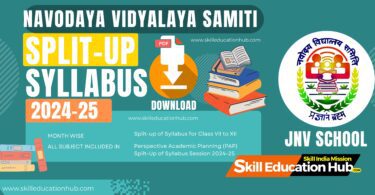The Significance of Library and Information Science Courses: Library and Information Science courses are designed to equip individuals with the knowledge and skills necessary to manage information resources effectively.

Introduction
Library and Information Science (LIS) courses play a pivotal role in shaping professionals who manage and organize vast repositories of information in the digital age. As society becomes increasingly reliant on information, the need for skilled professionals in this field has grown exponentially. This article delves into the intricacies of Library and Information Science courses, highlighting their significance, curriculum components, and the evolving landscape of knowledge management.
The Significance of Library and Information Science Courses: Library and Information Science courses are designed to equip individuals with the knowledge and skills necessary to manage information resources effectively. These courses go beyond the traditional image of librarians and encompass a broader understanding of information science, technology, and management. Graduates from LIS programs are prepared to work in various settings, including libraries, archives, museums, and information-centric organizations.

Curriculum Components
The curriculum of Library and Information Science courses is diverse, reflecting the multifaceted nature of the field. While specific programs may vary, common components include:
- Information Organization and Retrieval: Students learn how to classify, catalog, and organize information, both in physical and digital formats. This includes understanding metadata, classification systems, and indexing techniques.
- Information Technology: Given the technological advancements, LIS courses incorporate modules on information technology. This covers database management, digital preservation, web development, and the use of emerging technologies like artificial intelligence and machine learning.
- Information Management: Courses focus on developing skills related to information governance, data management, and information architecture. Students learn to design and implement systems for effective information organization and retrieval.
- Research Methods: Research is a crucial aspect of LIS, and students are taught various research methodologies, including qualitative and quantitative approaches. This prepares them to contribute to the evolving body of knowledge within the field.
- User Services: LIS professionals are often at the forefront of providing information services to users. Courses in this area cover reference services, user education, and information literacy.
- Legal and Ethical Issues: As information stewards, LIS professionals must navigate legal and ethical considerations. Courses address copyright, intellectual property, privacy, and other related issues.

Evolving Landscape of Knowledge Management: The digital revolution has transformed the landscape of knowledge management, impacting the way information is created, stored, and accessed. LIS courses have adapted to these changes, integrating topics such as digital libraries, information retrieval algorithms, and the management of big data.
- Automotive sample papers for Class 10 (Subject Code 404)
- CITS Admissions for (Session 2025-26)
- Class-9 Automotive Question Paper | JNV PWT EXAM
- NAVODAYA VIDYALAYA SAMITI SPLIT-UP SYLLABUS 2025-26
- NVS ID Card Portal Guide
Furthermore, the rise of social media, open access initiatives, and the globalization of information have influenced the field. LIS professionals are now expected to engage with diverse communities and collaborate on a global scale.
Library and Information Science courses serve as a cornerstone for individuals aspiring to contribute to the dynamic field of knowledge management. As technology continues to evolve, so too does the role of LIS professionals. By offering a comprehensive curriculum that combines traditional principles with modern advancements, these courses prepare graduates to meet the challenges of managing and disseminating information in our ever-evolving information society. As custodians of knowledge, LIS professionals play a vital role in shaping the future of information access and organization.
For Admission : Visit This Link








